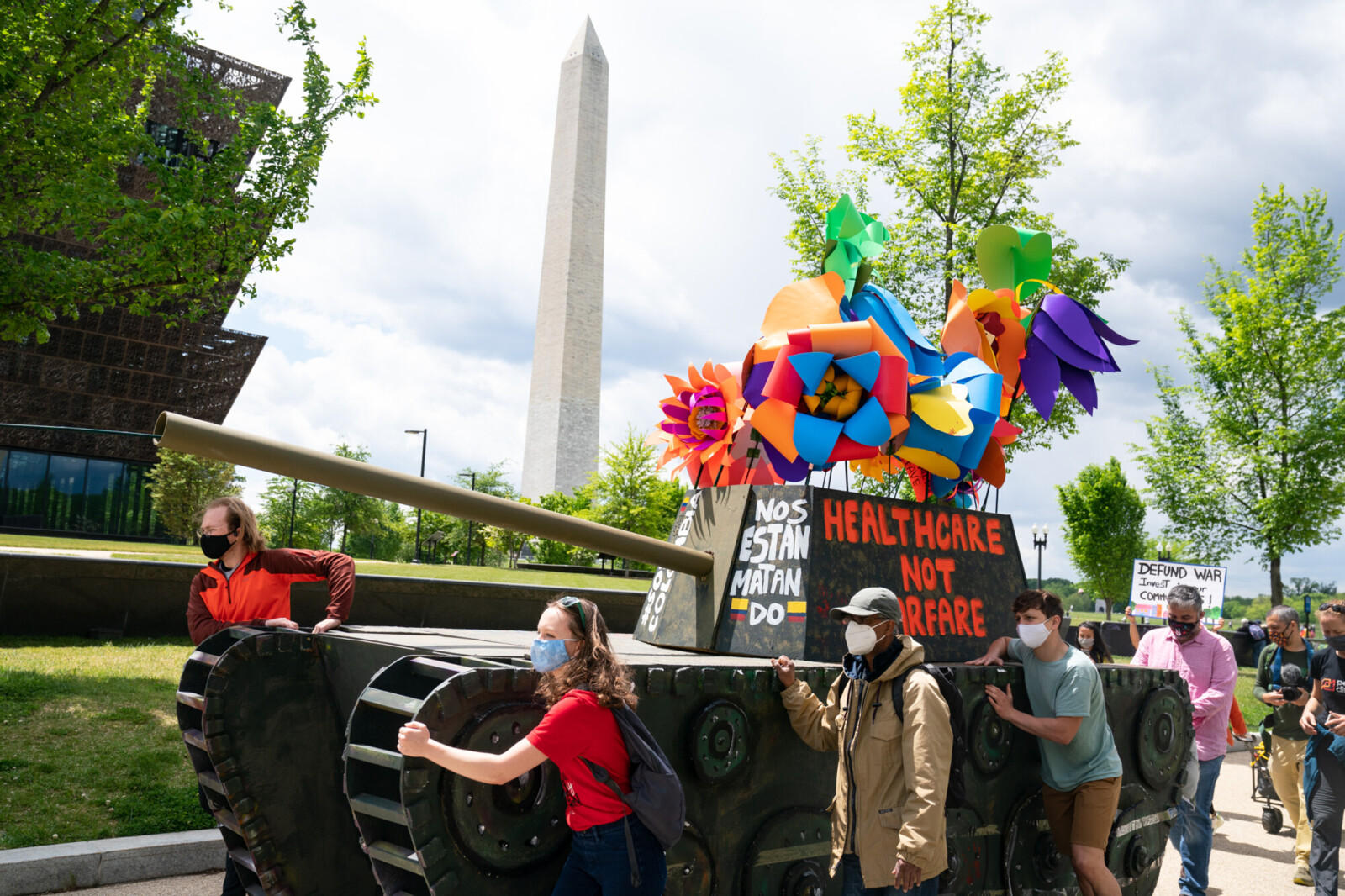
Our federal budget reflects the values and priorities of our country. But for a long time, the U.S. government has prioritized military spending over people. It is time to shift that. Today, we must demand a federal budget that invests in human needs—instead of war and militarism around the globe.
Since 9/11, there has been a more than 50% increase in military spending. That number has continued to rise even after the wars in Iraq and Afghanistan. This year, Congress approved a Pentagon budget of $825 billion, a $27 billion increase over FY23. Now the White House is requesting $895 billion for the Pentagon in FY25.
In addition, President Biden approved $95 billion in supplemental funding for Ukraine, Israel, and Taiwan, which could bring us to a total of $1 trillion just on military spending. The package includes $61 billion in Ukraine military funding, $17 billion for the Israeli military, $8 billion for Taiwan, and $9 billion for global refugee support.
While government officials have argued that this money is necessary to ensure global security, the reality is that continuing to fund war makes us less safe. The war in Ukraine is no closer to an end, despite the addition of billions of dollars in U.S. funding. By sending weapons and military funding to Israel, the U.S. is complicit in attacks that have killed tens of thousands of people and displaced most of the population.
Only diplomacy can bring safety and security. More war and militarism only divert resources away from critical needs like health care, education, and infrastructure, impacting everyday people’s quality of life. Furthermore, prolonged conflict disrupts economies, displaces communities, and fosters fear and instability that leads to long-term suffering.
How much of the money being spent on weapons and war could have been allocated to address pressing issues within our communities? How many individuals could have benefited from investments in education, health care, infrastructure, and social welfare programs?
With just the $95 billion in supplemental funding, we could have paid for health care for over 33 million low-income children—or nearly 10 million public housing units—for a whole year.
But year after year, military spending far exceeds funding for domestic projects that are crucial to the health, well-being, and livelihoods of people across the U.S. That includes efforts to address climate change. The “Pentagon’s annual budget is significantly more than 20 times the $37 billion the government now invests annually in reducing greenhouse gas emissions,” wrote William D. Hartung of the Quincy Institute for Responsible Statecraft.
Similarly, our education system grapples with chronic underfunding and systemic inequalities. Budgetary constraints often force schools to operate with limited resources, depriving students of the quality education they deserve.
Meanwhile, health care is out of reach for millions of people in the U.S. Today, we need to stop funding the Pentagon and prioritize investments in health care, SNAP (food stamps), public education, and other programs that ensure all people have the resources they need to thrive.
Increasing transparency about military spending is also necessary to identify where tax dollars could be redirected to public needs. By reallocating resources toward areas such as climate justice and public health, we can address pressing global concerns that impact everyone. Investing in climate justice helps to ensure sustainability for future generations. Prioritizing public health initiatives ensures that everyone has access to essential health care services, which lowers inequities and enhances general well-being. And investing in transportation and infrastructure, spurs economic growth, raising living standards in communities.
The 2024 federal budget presents a pivotal opportunity to reaffirm our commitment to human dignity and social justice. By prioritizing human needs over war and militarization, we can build a more equitable and prosperous society for all. Let’s urge our government to heed the voices of the people and invest in a future where compassion triumphs over conflict, and where the well-being of every individual is cherished and safeguarded.